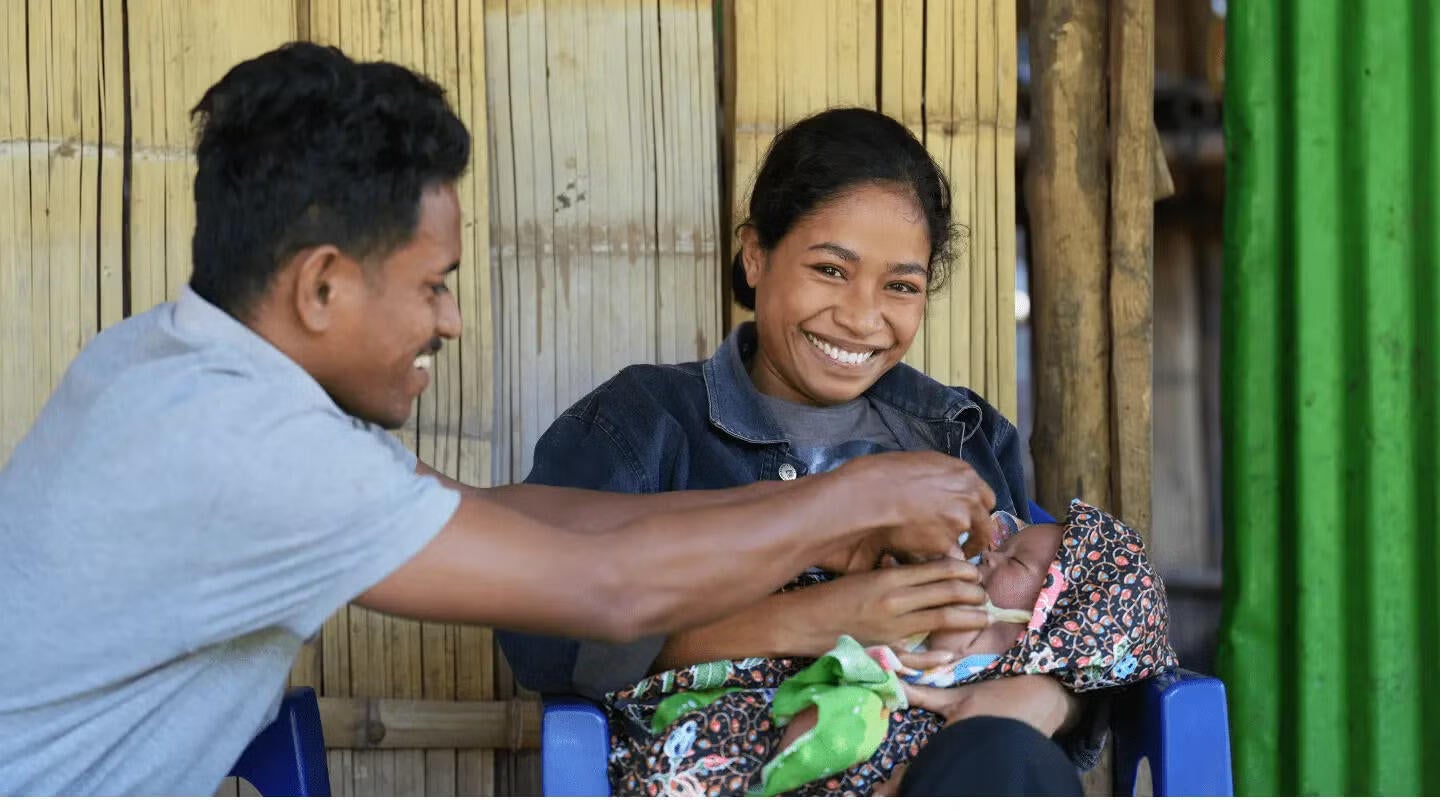In the early hours of a rainy night in the quiet village of Tutuluro, Manufahi, a young couple found themselves in the midst of an unexpected ordeal. At around 2:00 am 22-year-old Oliviana Maria Ornai felt the first waves of labor gripping her body. Outside a fierce storm raged unleashing a torrential downpour and fierce winds. The Tutuluro river swelled and flooded, cutting off their community and turning an already daunting moment into a desperate struggle for safety.
For Oliviana’s husband, 20-year-old Bonjono da Costa, the situation was overwhelming. The village was eerily quiet, but the storm’s fury made their isolation even more terrifying. With no immediate access to the health facility and no experience with childbirth, fear gripped him. "I didn’t know what to do," he admitted. "I wanted to get help, but the river had turned into a raging force, cutting us off completely." The only path to medical assistance lay beyond the swollen waters, but crossing it in the dark, amidst the storm, seemed impossible.
Despite the mounting pressure, Bonjono was determined to get his wife the medical care she needed. He stayed by Oliviana’s side, trying to keep her calm while grappling with his own fear. The possibility of seeking help seemed impossible until dawn, when neighbors arrived and rushed to alert the midwife at the local health post. Upon assessing Oliviana, the midwife knew there was no time to lose… she needed to be taken to the Emergency Obstetric and Newborn Care Center in Monaco Same immediately.
The challenges kept mounting but Bonjono refused to give up. With the roads nearly impassable, the midwife’s husband carefully navigated a motorbike through the treacherous terrain carrying Oliviana as close as possible to the riverbank. But the real test lay ahead… the river had swelled dangerously, turning their path into a rushing torrent. As they waded in, the water rose to their waists, each step a struggle against the current. Drenched and exhausted, they finally made it across relief washing over them as they spotted the ambulance waiting on the other side.
As soon as they reached the ambulance, Bonjono and Oliviana were met by healthcare professionals whose presence brought a much needed sense of relief. “Seeing the midwives from EmONC was like a light in the darkness. In that moment, it felt like we had hope again,” Bonjono added, his voice thick with emotion.
As she rested at the EmONC Center, Oliviana reflected on her ordeal and the fears that had gripped her throughout the night. “I wanted to give birth at the health facility in Monaco Same because I knew they had the proper equipment and trained healthcare providers,” she said. “I’ve seen what can happen when complications arise. My aunt suffered severe health issues after giving birth at home, and I was terrified of facing the same fate. I wanted a safe delivery for myself and my baby.”
By 11:00 am, Oliviana had delivered a healthy baby girl weighing 3,115 grams. The skilled midwives trained in Emergency Obstetric and Neonatal Care (EmONC) successfully delivered the baby, using a vacuum extractor when she became too weak to push. After 24 hours of monitoring, both mother and baby were safely discharged ending a night of struggle with the joy of new life.
Inés Cardoso, another midwife at EmONC reflected on the significance of their training in handling such cases: “Without the training we received through EmONC, we wouldn’t have been able to handle such a complex delivery. The vacuum extraction procedure, in itself, is something I learned through this program. Without this knowledge, we might have had to refer the case to a hospital.”
The EmONC center, which opened in December 2022, has been a beacon of hope for many families in the region. Equipped with medical, non-medical items and staffed by dedicated professionals, the center has supported over 200 births since its opening, all while maintaining a zero maternal mortality rate this year.
UNFPA, the United Nations sexual and reproductive health agency, in partnership with the Ministry of Health and the National Institute of Health, continues to strengthen the capacity of healthcare workers like Rosalia and Inés, ensuring that essential care reaches even the most remote areas. By providing training and medical resources, they are working toward their goal of eliminating preventable maternal deaths in Timor-Leste.


